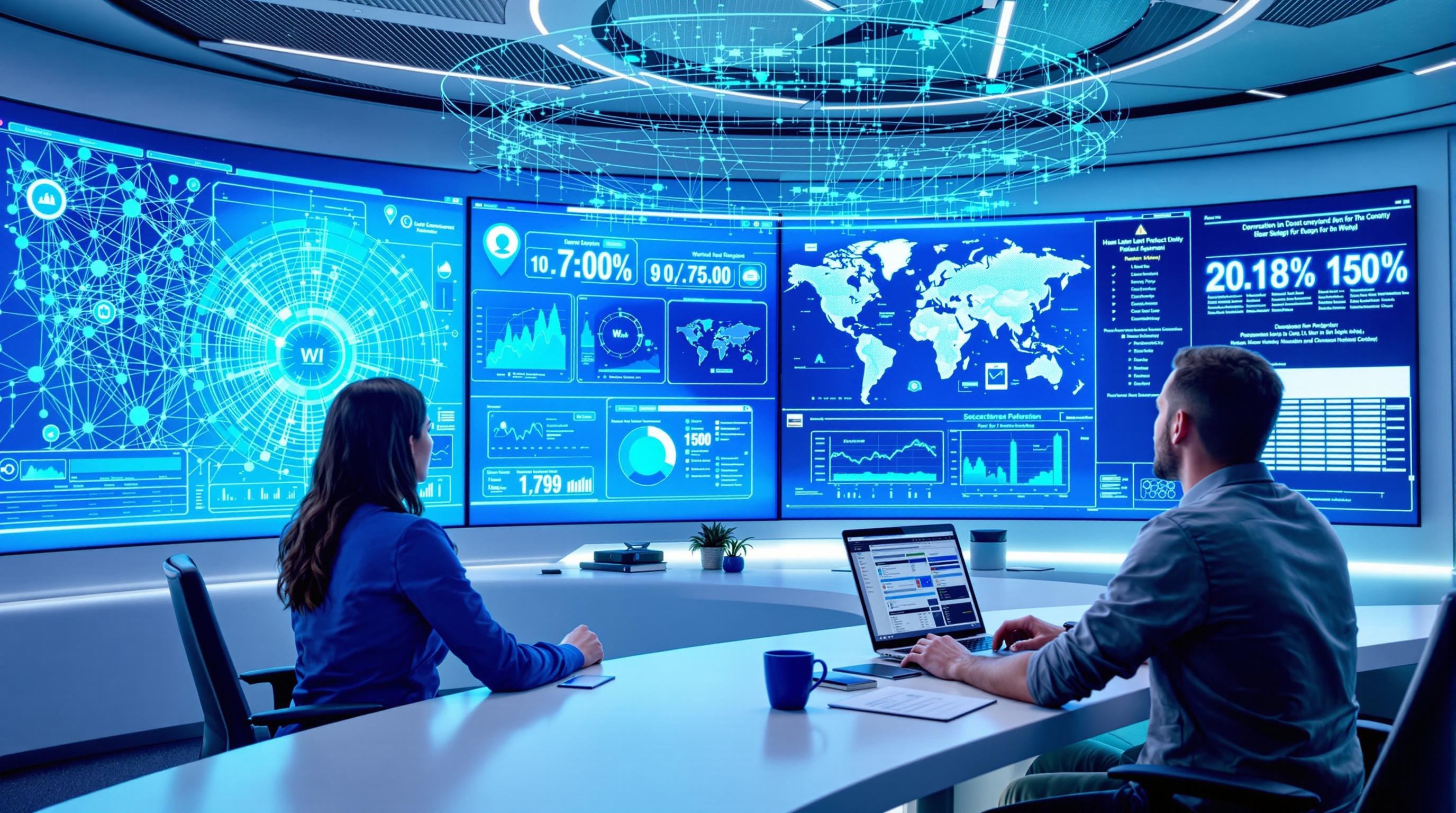In a globalized economic world, intellectual property rights are a crucial asset. Their effective monitoring is evolving through modern AI technologies from a reactive to a proactive discipline. While traditional approaches could often only capture known rights violations, intelligent algorithms today enable predictive risk assessment and early intervention. We analyze how companies can sustainably protect and strategically enhance their intellectual property through AI-powered monitoring systems.
Digital transformation has not only dramatically increased the speed of market development, but also the complexity of intellectual property violations. Current studies show that companies overlook a considerable portion of their potential IP violations – with significant economic consequences. The substantial financial damages from undetected rights violations underscore the necessity of a systematic and comprehensive monitoring strategy.
Modern AI technologies have fundamentally revolutionized intellectual property monitoring. They combine complex database queries with intelligent analysis algorithms that go far beyond simple text comparisons. The significance of these systems lies primarily in identifying potential risks before actual rights violations occur – a paradigmatic shift from reactive to proactive IP management.
1. The Evolution of IP Monitoring: From Manual Control to AI-Powered Intelligence
The development of intellectual property monitoring reflects the technological evolution of recent decades. Traditional approaches were based on manual database searches and spot checks, which inevitably remained incomplete and tied up considerable human resources. With the introduction of digital databases and automated search algorithms in the 1990s, efficiency improved, but detection performance remained limited to exact matches.
The integration of artificial intelligence and machine learning marks a quantum leap in monitoring technology. Modern systems analyze not only textual similarities, but also recognize visual parallels, phonetic matches and semantic relationships. Particularly advanced is their ability to learn from experience and continuously improve detection accuracy. Current studies document a significant increase in detection rates of potential IP violations compared to conventional systems – while simultaneously reducing false alarms.
2. Core Elements of Modern AI Monitoring Systems
The performance of current monitoring technologies is based on several key components. Central is the combination of various AI technologies that analyze different aspects of potential rights violations. Deep learning networks recognize visual similarities in trademarks and designs, while natural language processing evaluates semantic proximity and contextual use of marks. Particularly impressive is the ability of these systems to consider industry-specific peculiarities and evaluate the relevance of matches context-dependently.
A case study from the consumer goods industry illustrates the potential: A leading manufacturer was able to identify a violation of its design rights in an early development stage through the use of an AI-powered monitoring solution – based on prototype images in social media that conventional systems would not have recognized as relevant. The early intervention enabled an out-of-court settlement and prevented market confusion as well as costly legal disputes. The integrated alert function ensured immediate notification of responsible employees, enabling rapid response times.
3. From Reactive Control to Strategic Early Detection
The strategic added value of modern monitoring technologies goes far beyond mere identification of rights violations. They offer companies a comprehensive overview of market developments, competitive activities and technological trends. Particularly valuable are the predictive functions that identify potential conflict areas early and thus enable forward-looking IP strategy.
The economic implications of this development are considerable. Analyses show that companies with AI-powered monitoring systems can significantly reduce their enforcement costs while simultaneously increasing the value of their IP portfolio. Particularly successful are integrated approaches that directly link monitoring results with strategic decision-making processes and thus enable data-based optimization of IP management.
The Future of IP Monitoring: Global Integration and Predictive Intelligence
The future prospects for AI-powered monitoring systems are promising. Current developments focus on seamless integration of various data sources – from official registers through e-commerce platforms to social media and the dark web. This comprehensive data foundation, combined with increasingly powerful algorithms, will further increase precision and early detection rates.
At the same time, awareness of the need for transparent and ethically responsible AI systems is growing. Modern solutions increasingly offer explainability of their analyses and enable human experts to understand the assessments and correct them if necessary. This human-machine collaboration combines the efficiency of automated systems with the judgment of experienced specialists – an ideal model for complex legal questions.
While the technological evolution of monitoring systems continues to advance, with trends like global real-time monitoring and context-aware threat analysis on the horizon, one principle remains constant: The ability to detect IP violations early and address them proactively will remain a decisive competitive factor in the globalized economy. Companies that establish AI-powered monitoring strategies as an integral part of their IP management are optimally positioned to secure and increase the long-term value of their intellectual property.
A contribution by Volodymyr Krasnykh
CEO and President of the Strategy and Executive Committee of the ACCELARI Group

Tags: IP Monitoring, AI Knowledge Database, Intellectual Property Rights, IT Security, IT Services, IT Solutions
